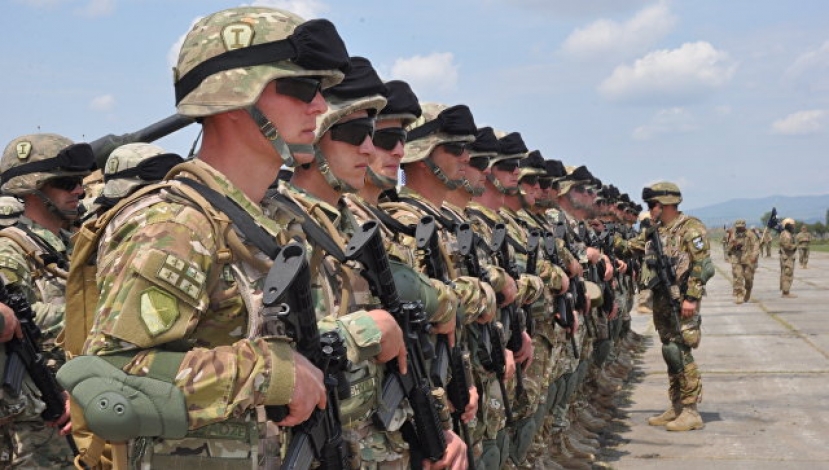Say No To NATO's Expansion Parade: Adding Georgia, Finland, And More Would Make America Less Secure
24.09.2016 14:53
 Say No To NATO's Expansion Parade: Adding Georgia, Finland, And More Would Make America Less Secure
Say No To NATO's Expansion Parade: Adding Georgia, Finland, And More Would Make America Less Secure
NATO, the alliance informally known as North America and The Others, remains committed to expansion. Powerhouse Montenegro, with 2080 men in uniform, will be the next entrant. Other governments knocking at the alliance door include Finland, Georgia, and Serbia.
Adding these states would violate the purpose of an organization intended to increase American security. Past NATO expansion made the U.S. worse off by multiplying Washington’s military guarantees. Newer accessions would do the same, without providing any countervailing benefits. Candidate states range from military nullities, such as Montenegro, to conflict carriers, such as Ukraine.
The transatlantic alliance was created in 1949 to protect war-ravaged Western Europe from the Soviet Union, an opportunistic predator after its victory over Nazi Germany. The threat to America reflected both Moscow’s control over Eastern and Central Europe and the U.S.S.R.’s role as an ideologically hostile peer competitor.
The end of the Cold War changed everything. The Soviet subject nations were freed, a humanitarian bonanza. More important, the successor state of Russia went from hostile superpower to indifferent regional power. NATO lost its essential purpose, since the U.S. no longer needed to shield Western Europe from Moscow.
The latter was viewed as inconceivable, not even worth considering. So the alliance expanded both its mission (to “out-of-area” activities) and membership (inducting former Warsaw Pact members). Washington’s military obligations multiplied even as the most important threat against it dissipated.
Objections to this course were summarily rejected. Not a single Senator voted against admitting the three Baltic states. Then no one imagined that the U.S. might be expected to fight on their behalf. The alliance was seen as the international equivalent of a gentleman’s club, to which everyone who is someone belongs. Those who pointed to possible conflicts with Moscow were dismissed as scaremongers. Expansion was expected to be all gain, no pain.
Alas, Russia did not perceive moving the traditional anti-Moscow alliance up to its borders as a friendly act. Despite coming from the KGB, Vladimir Putin originally didn’t seem to bear the U.S. or West much animus. However, NATO compounded expansion with an unprovoked war against Serbia, a traditional Slavic ally of Moscow, and proposals to include Georgia and Ukraine, the latter which long had especially close historical, cultural, economic, and military ties with Russia. Over time Putin, as well as many of his countrymen, came to view the transatlantic alliance as a threat.
